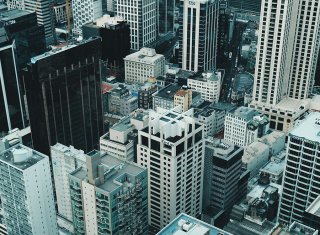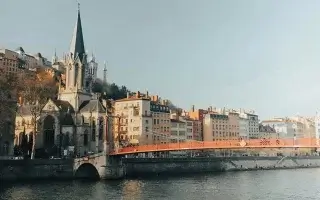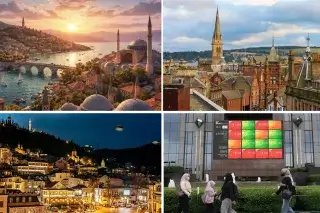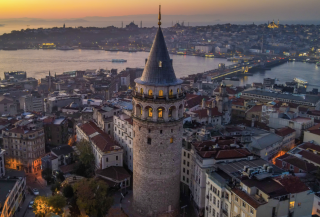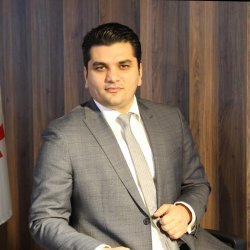read also
Georgia / Real Estate Georgia / Tourism Georgia / Tourism & hospitality / Investments / Вusiness / Migration 20.09.2022
Strategies to Overcome Economic Stagnation: Lessons from Global Crises
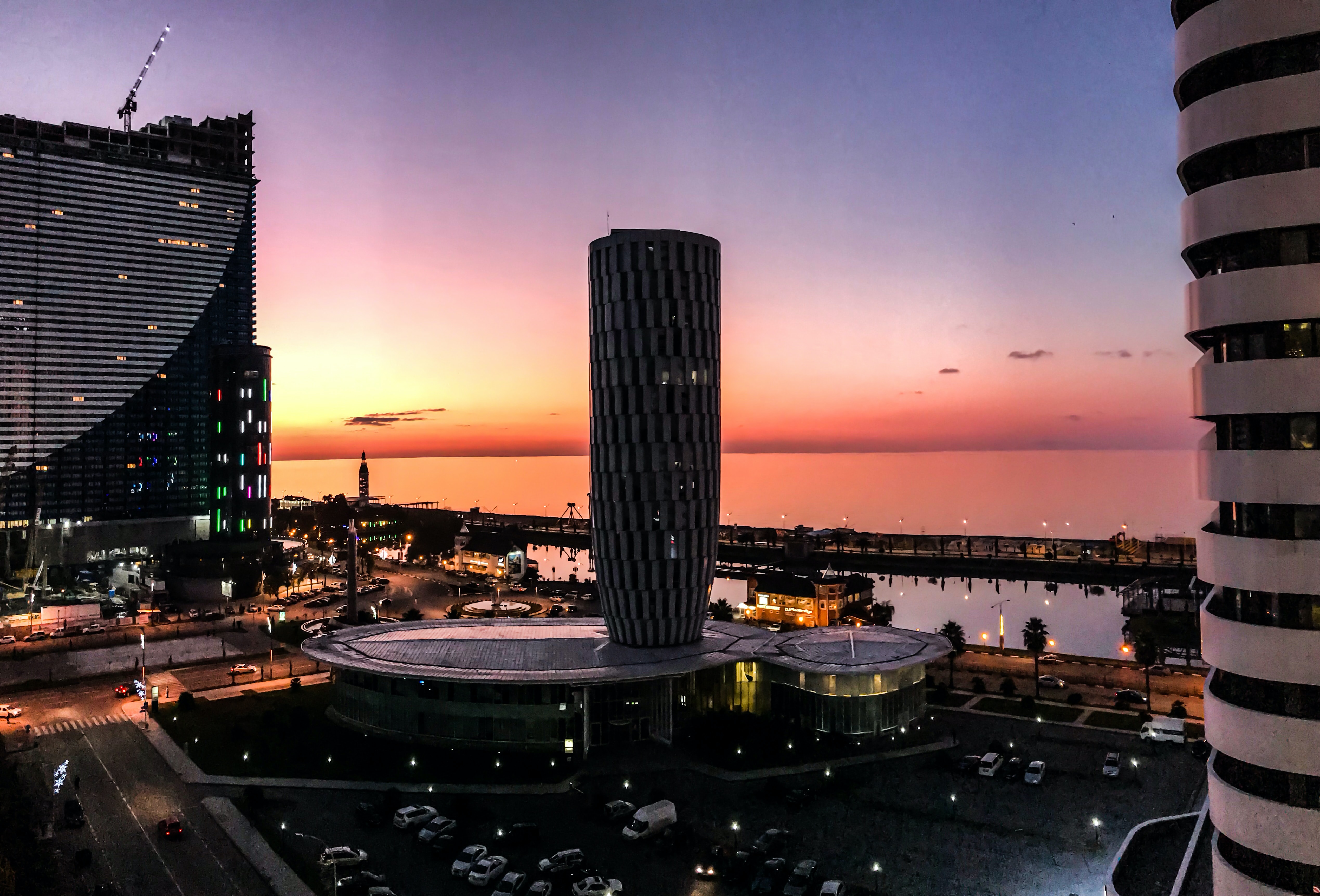
According to the Minister of Economy of Adjara, the region's GDP will grow by 18% by the end of the year. This is a significant growth, especially during the global economic crisis, when GDP growth in the EU is 0.5%, and in Latvia, Lithuania and Portugal it has reached negative values. What attracts investors to Georgia, how the country managed to overcome stagnation and become one of the fastest growing countries, we found out from Jaba Putkaradze, Minister of Finance and Economy of Adjara. We asked him about the investment climate in the republic, the measures taken by the government and the real state of affairs in the country's economy.
- Hello, Mr Jaba! The country's government has repeatedly stated that attracting investments is of key importance for Georgia. What is being done in the region to create an attractive environment for investors.
- Investments are one of the most important priorities of the Ministry of Finance and Economy. Interest in our country and especially in Adjara is constantly growing. Georgia is one of the few countries that managed to get out of stagnation so quickly after the pandemic. If we look at the US, China, EU countries, then almost all of them have not yet got rid of problems in the field of tourism and real estate. Some of them are now stagnating - in a state of reduced economic activity and rising prices. As a result, many painful measures must be taken to save the economy.
The central and local authorities of our country are pursuing a centralized policy so that the country can smoothly recover from the coronavirus restrictions and move to the stage of rapid economic growth. Almost all macroeconomic parameters show that, compared to 2019, we have double-digit economic growth not only in Adjara, but throughout the country. This trend will definitely continue throughout the year and we expect Adjara's gross domestic product to grow by more than 18%. These trends make Georgia one of the most interesting destinations for foreign investors.
Having weighed the risks and rewards, investors often make a decision in favor of Georgia. Indeed, the country is now in a favorable position. This is confirmed by various international business support ratings - the country has a favorable investment climate, security, and no bureaucratic problems. Government support for business is felt in all areas.
- How much did direct investment grow and what contributed to this growth?
- Foreign direct investment in the first quarter of this year increased three times or more compared to the same period last year. This is a direct indicator that foreign investors feel quite comfortable in Georgia and continue to invest in the region. An important trend in recent years has also been an increase in reinvestment rates.
Virtually all entrepreneurs are free to make their business decisions as long as they follow the law. We have very few restrictions regarding locations. Of course, no one will build a plant in a tourist area, but we have identified suitable locations for all types of businesses. Representatives of all industries can find factors contributing to the development of their business in Batumi, Kobuleti, mountainous Adjara. We have quite interesting investment directions that encourage them to come to these locations.
It is clear that an investor who has just come to the region, started a business and got acquainted with the conditions on the market, the environment, with a high degree of probability will start new projects here. To date, none of the private sector projects that have been underway for years have been suspended. There was only a period of slowdown during the pandemic.
Today we expect that the activity of investors will grow even stronger. The vast majority of projects are now either at the final stage, or moving forward at a fairly rapid pace. This is facilitated by the fact that the Ministry of Finance and Economy of Adjara daily offers new assets in an open, transparent, auction way - mainly land plots. Both local and foreign investors can participate in these auctions, of course, subject to certain conditions. A certain amount of investment capital is required. It is also important in which direction the business works and what opportunities for employment of local residents it opens. Thus, the state ensures the economic development of the region and contributes to the employment of citizens. Investors know in advance what to do and what will happen if they do not fulfill their obligations.
- Were there such cases and what was the reaction of the government?
- Of course, they were. Here I would like to highlight the most important decision of our team, which we made in September 2018 and then gave it in the form of a resolution. Practically all projects, all obligations that the private sector took on before the state were included in the framework of a single framework document. As you know, many projects were stopped during the years of the pandemic - in this case, fines were imposed on customers and project executors.
Entrepreneurs often did not know what to do - they were charged so many fines that they could not pay them. Because of this, doubts arose about the profitability of their projects.
As a result of the rule we developed, almost all of these projects, and there are more than 130 of them, were re-launched. As I said before, even during the pandemic, the vast majority of these projects proceeded at a normal pace. We have developed a mechanism by which the interests of both the public and private sectors have been protected. The conditions are simple - if you violate certain obligations, do not meet the deadline, you must provide a guarantee - a certain amount, which is calculated using a special formula.
After providing this guarantee and new terms from the investor, we decide how realistic they are. In most cases, companies had realistic deadlines. In this case, according to the rule, the accrual of fines is stopped and new deadlines for the completion of projects are given. As a result of this decision, projects worth about two billion lari were resumed. I can say that within the framework of this rule, we have given such a delay to everyone so that investors can overcome the pandemic period without tangible losses.
- Are local and foreign investors in the same conditions?
- Yes, and this is also one of the important factors why Georgia is interesting for foreign investors. The legislation of our country protects and equalizes Georgian and foreign investors in terms of rights and obligations. To help keep the business going during the pandemic, in some cases we have even exempted investors from rent. Everyone who rented property from the state was released.
We also adopted a rule that companies that had a bank guarantee and fulfilled more than half of their investment obligations were to release the funds presented under this guarantee pro rata. This gave investors additional financial resources to reinvest. Thanks to this, they were able to complete their projects.
We had a number of initiatives that allowed businesses to overcome the most difficult period of the pandemic and be ready to continue projects with greater intensity in the post-COVID period.
- What business areas are most important for the region's economy?
- In terms of sectoral development, tourism remains the cornerstone of strengthening our economy. About 400 flights per month are carried out through Batumi Airport, these are record numbers. Of course, the number of visitors, the amount they spent, income, and infrastructure are important for economic recovery.
The second important and intensively developing sector is real estate. It is important that in terms of tourism revenue, we even exceeded the data of 2019 by 20 percent, according to the indicators of June this year.
One of the main areas in terms of attracting investment is, of course, the production and development of the processing industry, where we are also developing important innovations. In addition to the Batumi industrial zone, we are now starting to develop the Kobuleti industrial zone. Almost all land plots in the Batumi industrial zone have been sold. There are only a few left. Each has its own investment obligations - it is necessary to manage the enterprise, provide employment for the local population, and invest in business. This project and its success is also directly related to the so-called "city of dreams" project. Our leadership plans to provide our fellow citizens with modern housing, and integrate them into society, providing them with work and income.
We have a limitation in the new industrial zone, here it is impossible to build an enterprise for processing minerals, for example, sand and gravel. But we have an enterprise that is engaged in the production of various building materials, but this is not a mining and processing enterprise. A local enterprise should not harm the environment and at the same time meet the needs of the market as much as possible. These are the key criteria for such projects.
I am pleased that most of the local enterprises are engaged in the production of furniture. For us, this is a rather interesting direction, because, according to research, Georgia has certain prospects in this sector of the economy both within the country and abroad. We have a good potential in this direction and we can take our niche in the world market. Based on the current situation in Georgia, we have certain conditions that contribute to the success of those who are engaged in this business.
- Which countries are more likely to invest in our region?
- First of all, significant investments come from neighbors - Turkey, one of the important investors, Azerbaijan, Kazakhstan. In recent years, there has been interest from European countries, the volume of their investments is growing every year. For example, from the Netherlands, the Czech Republic and Spain. It is especially important that large investments come from Israel, as well as from the Arab countries. Interest from large European countries is highest in the direction of energy and tourism. Israeli investors are interested in real estate and other areas, including the processing industry.
- Adjara has become attractive for international hotel brands - more and more branded projects with big names appear in Batumi and other resorts of Adjara. What attracts them to the region?
- Successes in this direction are connected with our PR-campaign. Georgia, including Adjara, is a place where an investor can invest money and receive fairly high dividends. At the same time, he can freely live here, transport his family and receive a stable income. This is a comfortable country for everyone, regardless of origin, religious affiliation. Here everyone will find what he likes - the sea, mountains, various areas of application of their creative abilities. Almost everyone can find their calling in Georgia.
Investors are completely independent in their business. Their only duty is to keep the law. With their creative potential, experience, and financial capabilities, they can do any business and the state will only help them in this. Compared to European countries, we have one of the lowest tax rates and these are officially established rates, and not offshore or other additional mechanisms of this kind.
I would also like to note that the Estonian tax model that we have implemented has also greatly contributed to reinvestment. As well as various initiatives, such as the Law on High Mountain Regions or other similar legislative acts, which allow investors to return part of the invested funds and develop their business. Investors invest the proceeds in new projects and further develop their business and the country's economy. There are also quite high profits in the industry. It is quite difficult to get such high incomes in other countries in the tourism or other sectors of the economy.
- Which of the existing projects is especially important for Adjara and why?
- It would be embarrassing for me to single out any project, all projects are important to us. But I want to note that in the direction of tourism we need not only quantity, but also quality. It is in this respect that the functioning of the so-called. branded hotels.
The sphere of production is also of particular importance for our region. Directly industrial zones and industry are one of the most important sources of replenishing our income. The sphere of production is a great contribution to the employment of the local population.
I want to note that in addition to Batumi and Kobuleti, the entire coastal strip is important to us, as well as the sustainable development of high mountain regions. In this sense, all projects that will contribute to the socio-economic development of our autonomous republic are important. We are intensively developing the infrastructure of both the coastal strip and other regions of the autonomy. Gasification is underway, water projects will be launched in the near future.
Roads are being repaired and built in all directions, we have begun intensively building sports and tourism facilities, and these facilities will provide additional services, including in the tourist direction, in order to attract more tourists. Many visitors prefer to stay in our region, and this trend should continue, as it directly affects the incomes of our citizens.
Both Gonio-Kvariati and Chakvi, Tsikhisdziri, Kobuleti are developing. We can tell you that the interest is quite large in all directions, in all places of the coastal strip of Adjara.
In addition to ecology, privatization, tax policy, as well as infrastructure projects, the implementation of complex infrastructure projects will remain a priority for us. This is one of the important factors that will contribute to the development of the economy and the improvement of the social background.
We are going to encourage and support the private sector as much as possible and expand its access to finance. We are talking about co-financing projects and grant projects. For example, together with USAID, we began to give grants to companies involved in the processing of solid waste. If you recycle household waste and you need equipment for this, the state co-finances it.
There are programs in agriculture. If in any municipality, village or locality you are implementing a project to create any type of processing industry enterprise, then the state will allocate the appropriate amount from the budget of the autonomous republic. It should be discussed which project will bring more results and which will employ more people. These two areas will help the private sector implement even more projects.



